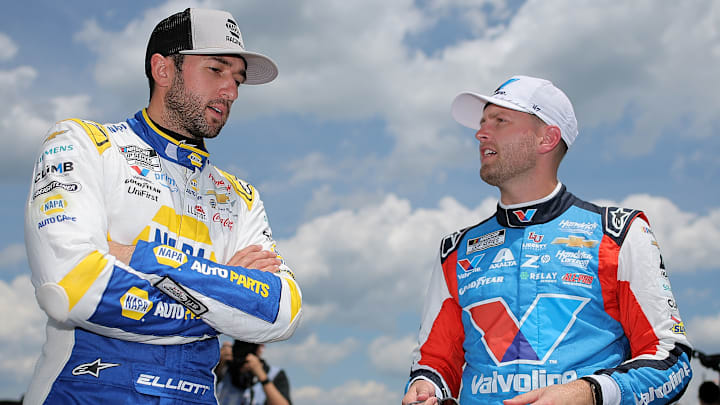The mere mention of the NASCAR playoffs is enough to get some fans' blood boiling, and that has been the case since they were implemented in 2004 – or at the very least, since the modern "win and in", 16-driver knockout format was introduced in 2014.
Fans believe that winning should not matter nearly as much as it does, and season-long points should count for a lot more than they do. There are certainly ways to make this happen while including some sort of postseason format, but nobody can seem to agree on what that is.
Additionally, NASCAR doesn't seem to care, because having a champion who finished in 15th place in the regular season standings last year didn't seem to faze them. Fair play, though; Joey Logano did what nobody else could, and he earned it, and NASCAR has basically written off the complaints, even if they did promise to assess this year's playoffs for potential future consideration of changes.
In other words, nothing is going to happen. At least not yet.
But NASCAR fans better be careful what they wish for when it comes to a season-long points format.
As Beyond the Flag contributor Ryan McCafferty recently pointed out, NASCAR's points structure is flawed. I've always maintained that stage points further screw things up, and they do; the winning driver can finish any given race 11th in total points scored, and the 16th place finisher can lead all drivers in points. It makes no sense.
But he essentially stated that a good finish should be more rewarding than a poor result is damaging, and right now, it isn't.
That's basically what IndyCar and Formula 1 have done so well at with their points structures. But in NASCAR, every position from P2 to P36 is worth a single extra point, with a win being worth five extra rather than one. Big deal.
What, exactly, does that mean in terms of what should alarm fans about the potential removal of the playoffs?
Ignoring stage points, points leader William Byron has scored 573 points so far this year. First of all, that's only good for third in the series, not first. But I'm not here to talk about the nonsensical nature of stages and stage points for the umpteenth time. Everyone who watched NASCAR before 2017 already knows that.
Leading in total points (excluding stage points) is Chase Elliott, and he has scored 629 in 24 races. That's good for an average of 26.2 points per race.
That's roughly worth an 11th place finish. Byron is sitting at 23.9, which is roughly worth a 13th place finish.
As McCafferty states, "if the [playoffs] are to go, we cannot return to a world in which the champion can hide out in ninth place every week."
It's actually more like 11th, which makes matters even worse.
Is that really what NASCAR fans want?
You better believe that, if the format changes, the No. 22 team will be ready to pounce and make the new system work in their favor.
It's why Logano, who has never once led the Cup Series in total points scored and never once led it in wins during any of his three championship seasons, keeps winning championships.
Right now, winning at specific times – even with terrible finishes the rest of the time – is what NASCAR rewards in the championship battle. He knows that, and so does his team, and they have unquestionably capitalized on that better than anybody else during this era.
If NASCAR suddenly starts rewarding drivers who show up to run 11th every week with championships, that's exactly what teams, including Logano's, are going to try to do.
And guess what? NASCAR fans are going to complain about that, too.
I've always said that you can make statistics show whatever you want them to. If Jimmie Johnson's career average finish were 2.5 spots higher than it actually is (so 1,750 total spots over 700 races), it would be 11.0. And if he had finished there every race, he'd have fewer career top 10 finishes than Danica Patrick.
Instead, he's a seven-time champion with 83 race wins, good for a sixth place tie on the all-time list.
So again, NASCAR fans. Be careful what you wish for. Maybe winning should not have the same value, compared to total points, that it does now, but points becoming the be-all and end-all could have extreme consequences. That's why NASCAR needed, and still needs, some sort of playoff format in the first place.
